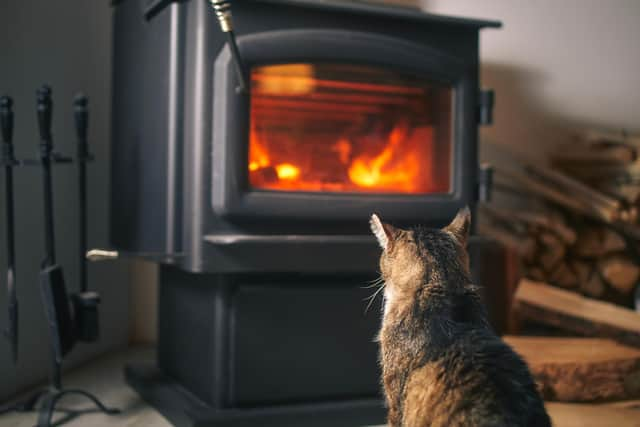Kirsty McLuckie: keep a close eye on your winter heat
It is estimated that the average person spends 90 per cent of their time indoors, which includes 14 hours a day in our own houses – and this will be significantly more for those of us who work from home.
But internal environments – including air quality, moisture levels and temperature – can have significant mental and physical health implications, and clean air in particular is vital for our wellbeing, comfort and productivity.
Advertisement
Hide AdAdvertisement
Hide AdPaul Testa, director of HEM Architects, and a retrofitting expert for the Homebuilding & Renovating Show, says: “To get good air quality, you are ideally changing the air in your home once every three hours. This is like opening every window in the house for ten mins every hour, even in winter.”


Super energy efficient homes, such as those that meet the Passive House standard, are designed for their air tightness but, in order to be healthy places to live, they also require ventilation systems to bring in fresh air without significant heat loss.
But without such a system, older buildings can harbour air that is stale enough to be detrimental to health. Testa says: “Time and again, natural ventilation has been proven to provide insufficient fresh air to keep us healthy, but this is what most homes in the UK rely on.”
A key indicator of air quality is the level of carbon dioxide (CO2) in the air. As this level rises the less alert we feel, the less productive we are – we may get headaches, and very high levels can induce serious symptoms.
A simple CO2 monitor is a great way to check and only costs a few pounds.
All homes with appliances that burn gas, wood, oil or coal should also have a carbon monoxide detector.
Minor symptoms of carbon monoxide poisoning are headaches, dizziness and nausea. But it is a very dangerous gas. In severe cases it can cause those who inhale it to become delusional – and it can be deadly.
There have been reports of psychosis, paranoia and even supernatural activity where carbon monoxide poisoning has been found to be the culprit.
Advertisement
Hide AdAdvertisement
Hide AdHumidity is another factor that will affect our comfort levels in the short term and has detrimental effects on health over longer periods.
Humidity above 60 per cent can make us feel colder and can exacerbate issues such as condensation and mould. Prolonged exposure to these problems can cause respiratory illnesses, infections, allergies or asthma.
Keeping your home at a temperature of 18 degrees and above in the winter months should help with humidity and, although it can be expensive, heating to this level should eliminate cool surfaces on which condensation can form.
Living in temperatures consistently below 18 degrees isn’t healthy and has been found to put the human body under increased stress.
Maintaining a warm and well-ventilated home can feel like a constant balancing act. New technology in heating and insulation will make it easier but, in the meantime, digital monitors should give you peace of mind.
- Kirsty McLuckie is property editor at The Scotsman